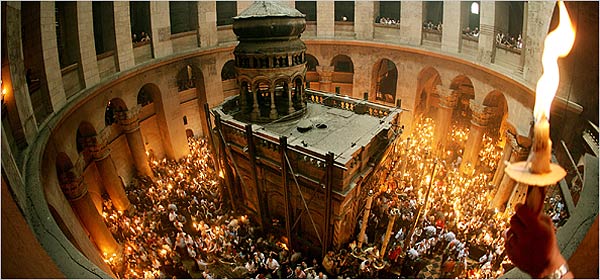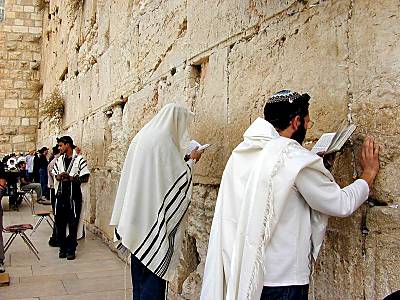Sacred Spaces Conference
“We live in an increasingly interreligious world where for the most part, nations have given up on forced conversion. In such a multi-faith world, we must work together on our common goals and try to make peace.” – Rabbi Jack Bemporad
Thousands have been killed in clashes around competing claims to sacred spaces — from Israel to India. Other disputes have bordered on the absurd: at the Church of the Holy Sepulcher, Christianity’s holiest site, a ladder has been stuck above its entrance for some 200 years because no one has the authority to move it. Around the world, blood will continue to be spilled and ancient sites will collapse in decay while waiting for political solutions that do not come. Sacred spaces are a global problem that ignite violence, but they also offer a potential for intelligent interreligious dialogue that can be a path forward to co-existence, if not peace.
In response, an unprecedented gathering of experts from around the world conferred in Rome on December 14-15, 2011 to focus on what often seems to be an intractable problem fraught with emotion and politics: Sharing sacred space.
Theologians, anthropologists, historians, lawyers, clergy and more gathered from almost a dozen countries — including US, Iran, Israel, Ukraine, Turkey, UK, Italy — for this 2-day intensive conference to discuss a range of topics: From what is sacred and the theological meaning of sacred space to different religions, to negotiating conflicts at sacred sites, with analysis of real world successes and failures.
The conference was co-sponsored by Rabbi Jack Bemporad, Director, The John Paul II Center for Interreligious Dialogue at The Angelicum Pontifical University in Rome and The Center For Interreligious Understanding, Prof. Cole Durham of Brigham Young University, and Prof. Marshall Breger of the Catholic University of America. Prof. Breger notes, “How and what way one may share sacred space depends in large part on the philosophical and theological meanings of sacred space. If it’s holy to me must I exclude you? If sacred does not mean exclusivity, then we have possibilities. Theory and theology are rarely discussed but weigh-in heavily on the process toward peaceful co-existence.”


